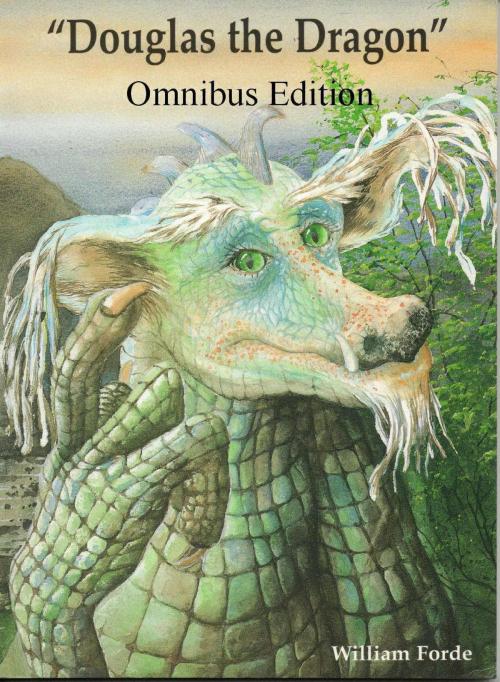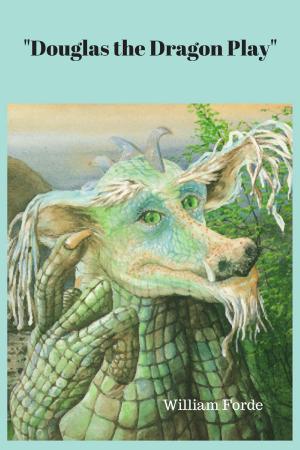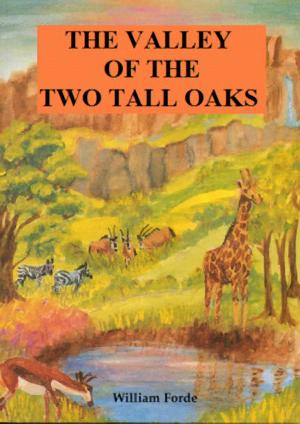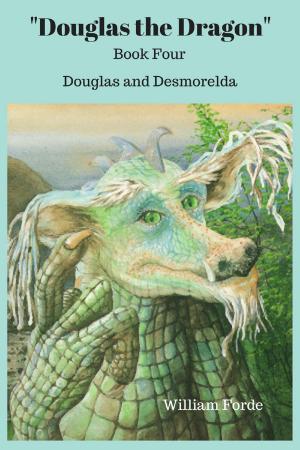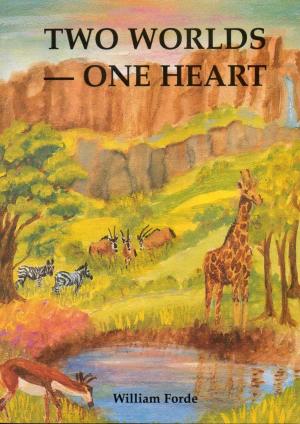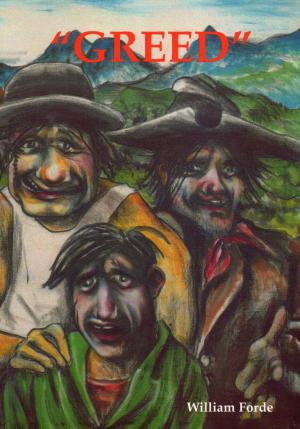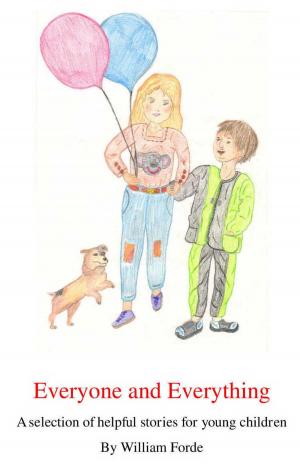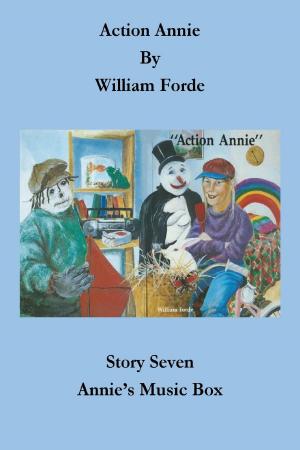| Author: | William Forde | ISBN: | 9781465709455 |
| Publisher: | William Forde | Publication: | January 26, 2012 |
| Imprint: | Smashwords Edition | Language: | English |
| Author: | William Forde |
| ISBN: | 9781465709455 |
| Publisher: | William Forde |
| Publication: | January 26, 2012 |
| Imprint: | Smashwords Edition |
| Language: | English |
‘Douglas the Dragon’ symbolises ‘the power of love.’ A young orphaned dragon is found and adopted by a young boy and becomes a much-loved dragon in the village. When the boy is killed by a volcano, the dragon is eventually evicted from the community. The dragon spends 50 years in exile sitting upon his volcano of hate and getting angrier and angrier- until his anger explodes and he seeks revenge.
Old age and death are stages in a person’s life that all children find difficult concepts to understand, but this is eased considerably when ‘death’ is associated with the concept of ‘rebirth.’ At a time of separation, bereavement or loss, children become more isolated, non-communicative and vulnerable. Allow Douglas to help them ‘live again’ through his own experiences of illness and near death.
Douglas negotiates the life stages of being orphaned, adopted, accepted, loved, rejected, feared, outcast, reformed and then made redundant. He leaves his beloved village and past to seek a new way of life, and finds an angry female dragon whom he eventually changes with his love, returns to his beloved village, marries her and starts a family of baby dragons.
By 1971, I had founded the process upon which all ‘Anger Management’ groups would thereafter follow and freely gave this knowledge to the world. Within the space of two years, ‘Anger Management’ (a phrase that I coined), had mushroomed across the English speaking world.
After 25 years of researching and specialising in Anger Management, Relaxation Training, Behaviour Modification and Stress Management, I started writing children’s books. My primary purpose of writing for children was to convey to them through my books, the basic principles of ‘Anger Management.’
The expression of ‘Anger’ by a child is a natural and healthy process that ought not be discouraged by adults. When a child expresses anger, the adult is alerted to the fact that something is wrong, but the repression (non-expression) of anger by a child conceals personal hurt and a degree of emotional disturbance, which could lead to them feeling ‘unloved.’
The most popular of all my children’s books have been the four stories of ‘Douglas the Dragon.’ They have been publicly read in thousands of Yorkshire Schools between 1990 and 2005.Numerous teachers have used them to help children come to terms with the emotional upset that moving house, changing schools, being separated from part of one’s family, bereavement of loved ones or being excluded from community activities can produce. Child Psychologists, Educational Welfare Officers and Trauma Therapists also used the stories to help abused children express their righteous anger, thereby enabling the progression of their emotional development through the facilitation of healthy expression.
The central themes of the ‘Douglas the Dragon’ stories evolve around the issues of Anger, Fear, Love, Separation, Bereavement, Second Chances, Effect of Exclusion and the unwelcome experience Sudden Change can produce. Indeed, the late Princess Diana once phoned me when Princes William and Harry were aged around 9 years and 7 years, and asked that I send her a copy of ‘Douglas the Dragon’ along with a copy of ‘Sleezy the Fox’ so that she may read them to her children at bedtime.
There is a two-headed dragon that lives in the heart of every man, woman and child; a ‘Dragon of Anger’ and a ‘Dragon of Love.’ Both dragons compete for the control of our thoughts, feelings and actions, but only one of them can be victorious. The ‘Dragon of Anger’ will destroy you unless you evict it from your body in the form of healthy expression. We cannot get the ‘Dragon of Anger’ out of our bodies until we allow in the ‘Dragon of Love.’
The ability to express the ‘Dragon of Love’ through our thoughts, words and deeds will lead us on to increased self-acceptance, greater happiness, improved health and personal freedom; bringing us closer to our true selves, our families, our friends, and our God.
‘Douglas the Dragon’ symbolises ‘the power of love.’ A young orphaned dragon is found and adopted by a young boy and becomes a much-loved dragon in the village. When the boy is killed by a volcano, the dragon is eventually evicted from the community. The dragon spends 50 years in exile sitting upon his volcano of hate and getting angrier and angrier- until his anger explodes and he seeks revenge.
Old age and death are stages in a person’s life that all children find difficult concepts to understand, but this is eased considerably when ‘death’ is associated with the concept of ‘rebirth.’ At a time of separation, bereavement or loss, children become more isolated, non-communicative and vulnerable. Allow Douglas to help them ‘live again’ through his own experiences of illness and near death.
Douglas negotiates the life stages of being orphaned, adopted, accepted, loved, rejected, feared, outcast, reformed and then made redundant. He leaves his beloved village and past to seek a new way of life, and finds an angry female dragon whom he eventually changes with his love, returns to his beloved village, marries her and starts a family of baby dragons.
By 1971, I had founded the process upon which all ‘Anger Management’ groups would thereafter follow and freely gave this knowledge to the world. Within the space of two years, ‘Anger Management’ (a phrase that I coined), had mushroomed across the English speaking world.
After 25 years of researching and specialising in Anger Management, Relaxation Training, Behaviour Modification and Stress Management, I started writing children’s books. My primary purpose of writing for children was to convey to them through my books, the basic principles of ‘Anger Management.’
The expression of ‘Anger’ by a child is a natural and healthy process that ought not be discouraged by adults. When a child expresses anger, the adult is alerted to the fact that something is wrong, but the repression (non-expression) of anger by a child conceals personal hurt and a degree of emotional disturbance, which could lead to them feeling ‘unloved.’
The most popular of all my children’s books have been the four stories of ‘Douglas the Dragon.’ They have been publicly read in thousands of Yorkshire Schools between 1990 and 2005.Numerous teachers have used them to help children come to terms with the emotional upset that moving house, changing schools, being separated from part of one’s family, bereavement of loved ones or being excluded from community activities can produce. Child Psychologists, Educational Welfare Officers and Trauma Therapists also used the stories to help abused children express their righteous anger, thereby enabling the progression of their emotional development through the facilitation of healthy expression.
The central themes of the ‘Douglas the Dragon’ stories evolve around the issues of Anger, Fear, Love, Separation, Bereavement, Second Chances, Effect of Exclusion and the unwelcome experience Sudden Change can produce. Indeed, the late Princess Diana once phoned me when Princes William and Harry were aged around 9 years and 7 years, and asked that I send her a copy of ‘Douglas the Dragon’ along with a copy of ‘Sleezy the Fox’ so that she may read them to her children at bedtime.
There is a two-headed dragon that lives in the heart of every man, woman and child; a ‘Dragon of Anger’ and a ‘Dragon of Love.’ Both dragons compete for the control of our thoughts, feelings and actions, but only one of them can be victorious. The ‘Dragon of Anger’ will destroy you unless you evict it from your body in the form of healthy expression. We cannot get the ‘Dragon of Anger’ out of our bodies until we allow in the ‘Dragon of Love.’
The ability to express the ‘Dragon of Love’ through our thoughts, words and deeds will lead us on to increased self-acceptance, greater happiness, improved health and personal freedom; bringing us closer to our true selves, our families, our friends, and our God.
